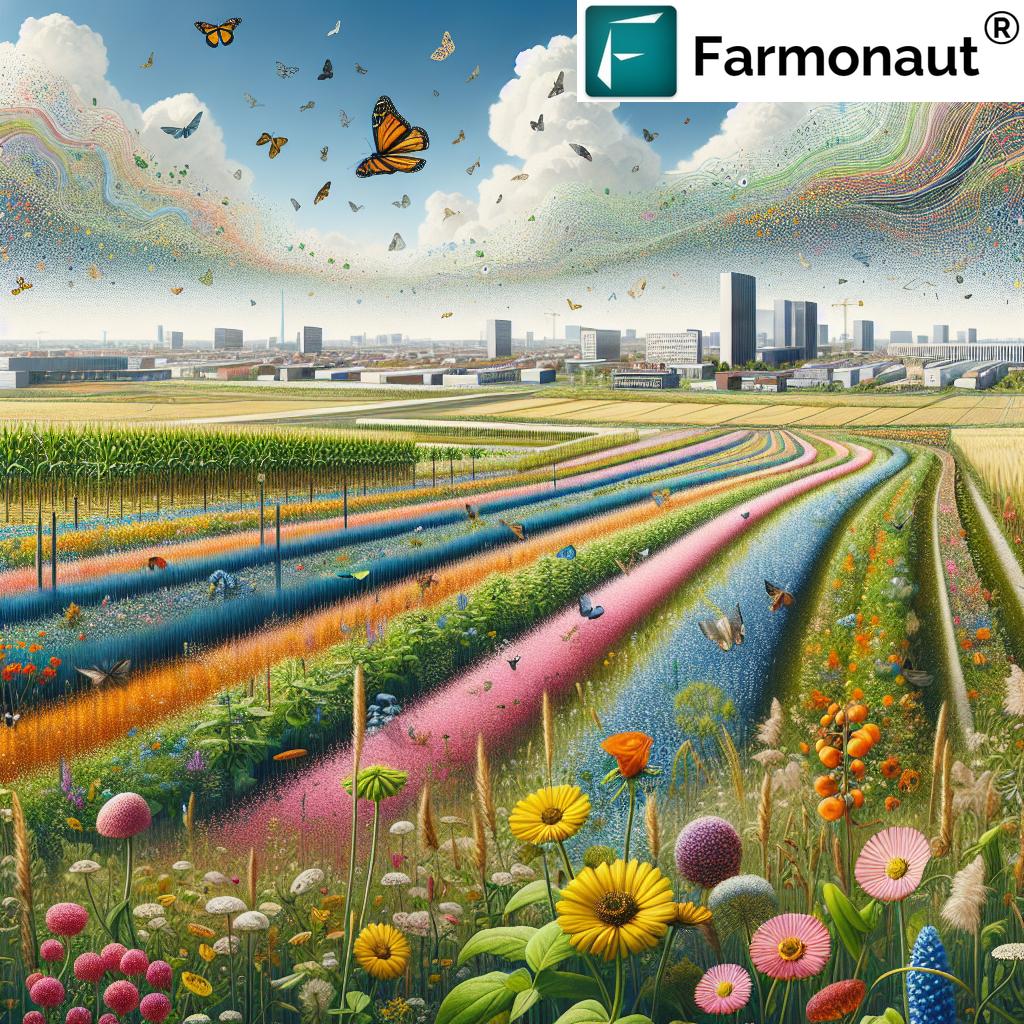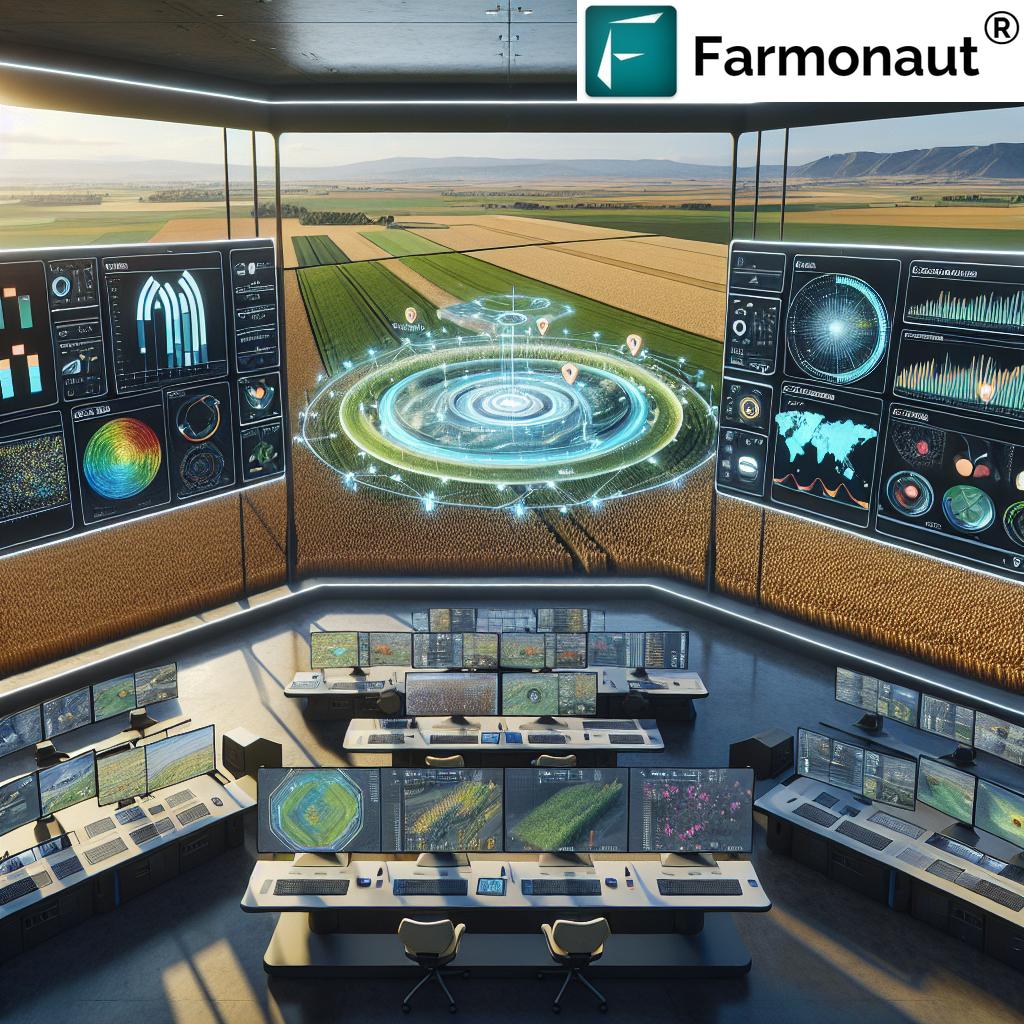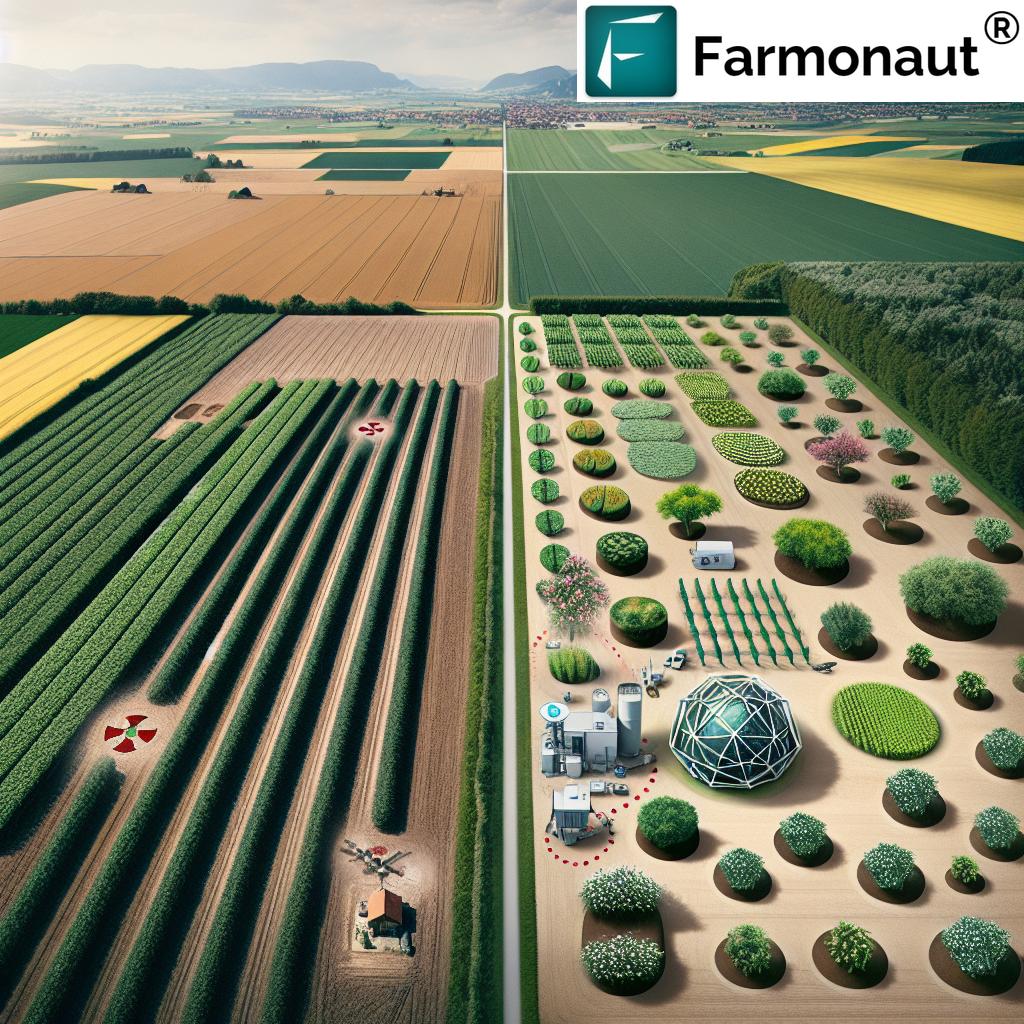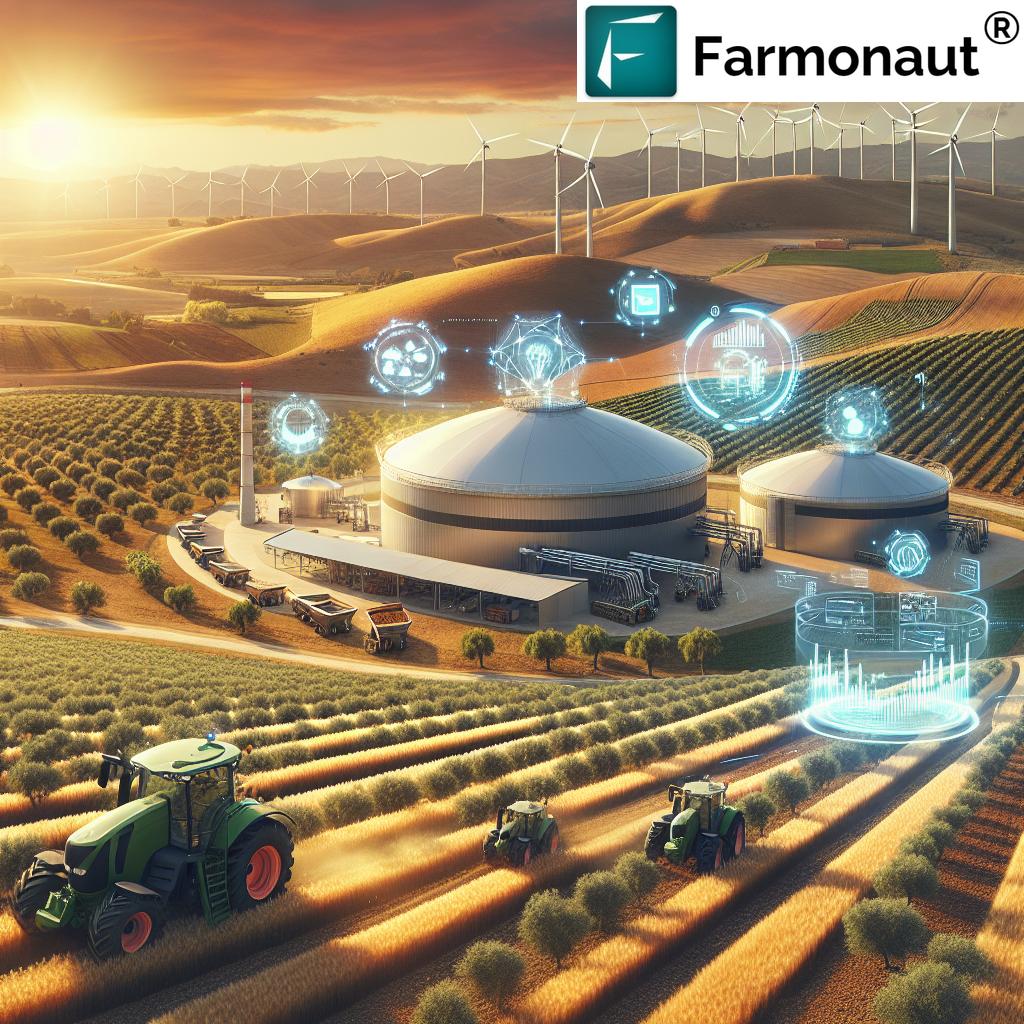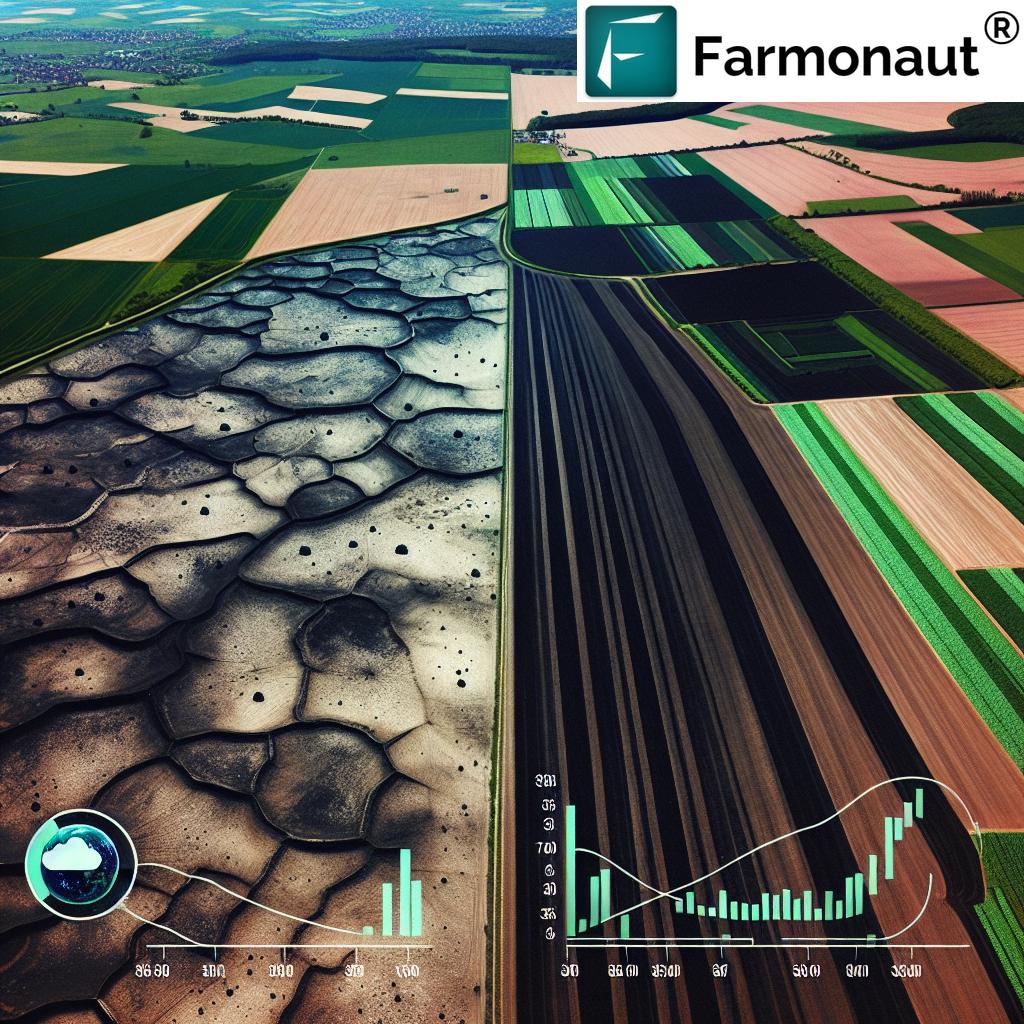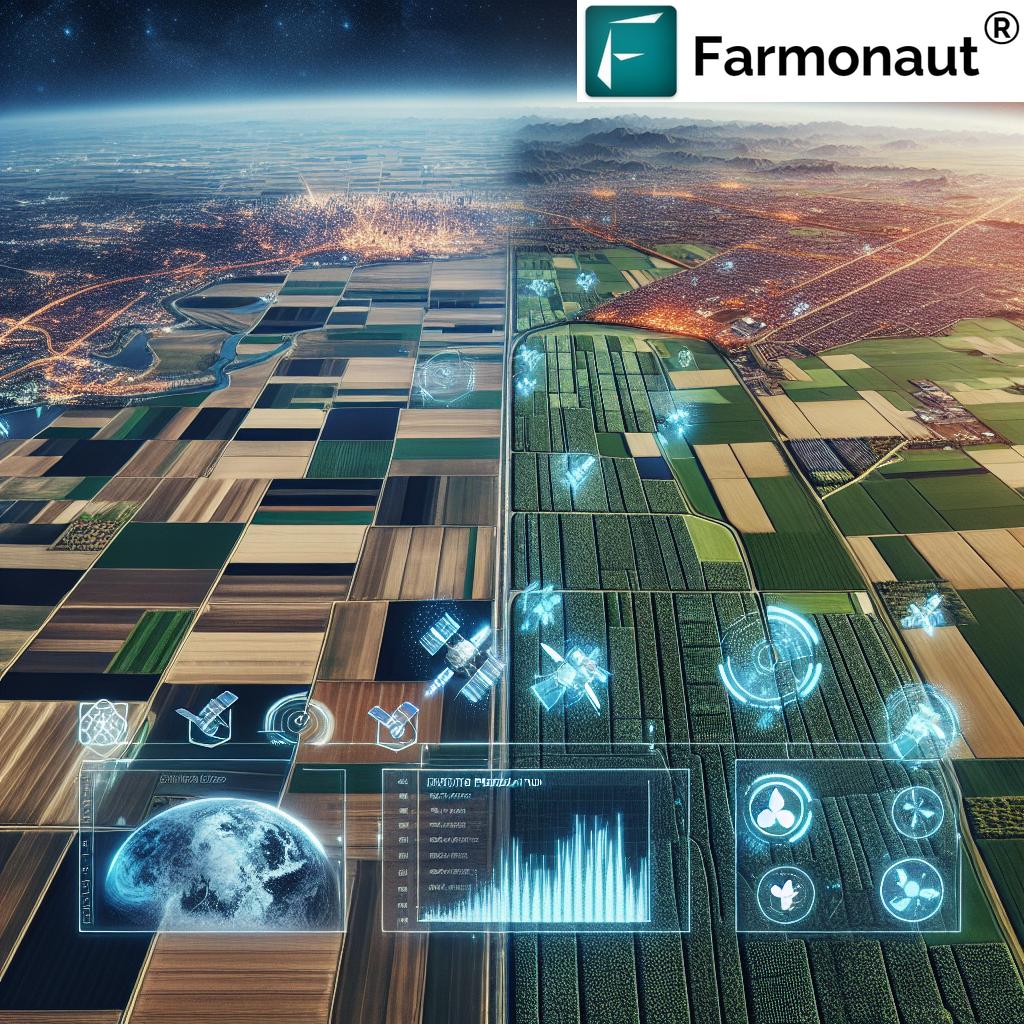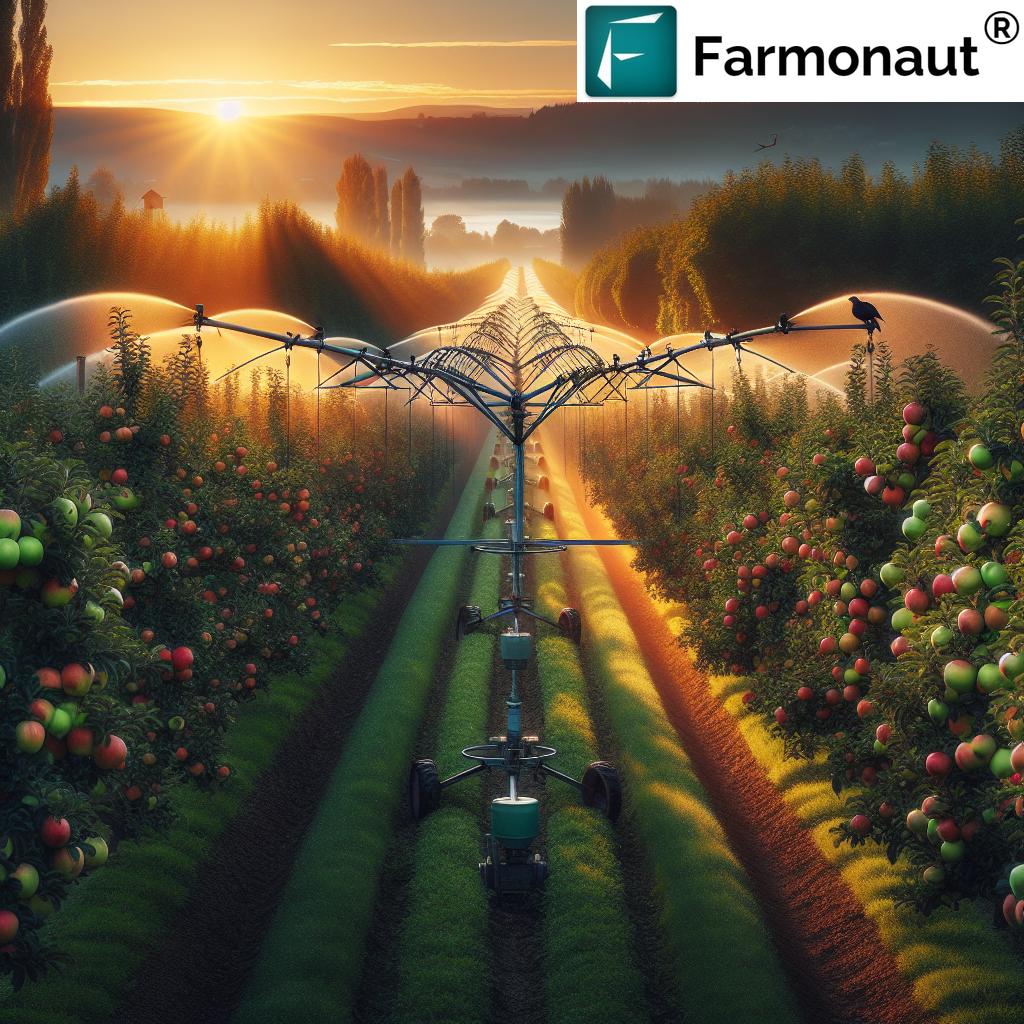EU’s Agricultural Revolution: How Digital Farming and Sustainable Practices Are Shaping Rural Development
“The EU’s Common Agricultural Policy (CAP) impacts over 22 million farmers and agricultural workers across Europe.”
Welcome to our comprehensive exploration of the European Union’s agricultural revolution! In this blog post, we’ll delve into how digital farming and sustainable practices are transforming rural development across Europe. As experts in the field of agricultural technology and sustainability, we at Farmonaut are excited to share our insights on these groundbreaking changes.
The Evolution of EU Agricultural Policy
The European Union has long recognized the importance of agriculture in shaping its economic, social, and environmental landscape. The Common Agricultural Policy (CAP) has been the cornerstone of EU agricultural initiatives since its inception. However, in recent years, there has been a significant shift towards simplification and sustainability in agricultural practices.
- CAP Simplification: Streamlining procedures for farmers
- Sustainable Farming Practices: Emphasizing environmental conservation
- Rural Development Initiatives: Boosting economic growth in rural areas
These changes are not just policy amendments; they represent a fundamental shift in how we approach farming and rural development in the 21st century.
Digital Agriculture: The New Frontier
“Digital farming technologies have the potential to increase crop yields by up to 30% while reducing water usage by 20-50%.”
Digital agriculture is revolutionizing the way we farm. From precision farming techniques to AI-driven crop management, technology is at the forefront of this agricultural transformation.
Precision Farming: A Game-Changer
Precision farming leverages technology to optimize crop production. By using data collected from various sources, including satellite imagery and soil sensors, farmers can make more informed decisions about planting, irrigation, and harvesting.
At Farmonaut, we’re proud to be at the forefront of this revolution. Our satellite-based crop health monitoring system provides real-time insights into vegetation health, soil moisture levels, and other critical metrics. This data-driven approach helps farmers make informed decisions, ultimately optimizing crop yields and reducing resource wastage.
Explore our innovative solutions:
AI and Machine Learning in Agriculture
Artificial Intelligence (AI) and Machine Learning (ML) are playing increasingly significant roles in modern agriculture. These technologies are being used to predict weather patterns, detect crop diseases, and even automate farm operations.
Our Jeevn AI Advisory System is a prime example of how AI can revolutionize farming. This personalized farm advisory tool delivers real-time insights, weather forecasts, and expert crop management strategies to farmers, improving farm productivity and efficiency.
Sustainable Farming Practices: The Heart of EU Agricultural Policy
Sustainability is no longer just a buzzword; it’s a necessity. The EU’s agricultural policies are increasingly focused on promoting sustainable farming practices that protect the environment while ensuring food security.
Organic Farming: Growing Sustainably
Organic farming has seen significant growth across Europe. This method of agriculture focuses on producing food using natural processes, avoiding synthetic pesticides and fertilizers. The EU has set ambitious targets to increase the area under organic farming, recognizing its benefits for biodiversity and soil health.
Climate-Resilient Crop Production
With climate change posing significant challenges to agriculture, the EU is investing in research and development of climate-resilient crop varieties. These crops are designed to withstand extreme weather conditions, ensuring food security in the face of climate uncertainty.
At Farmonaut, we contribute to this effort through our advanced crop monitoring systems. By providing early detection of stress factors, we help farmers adapt their strategies to changing climate conditions.
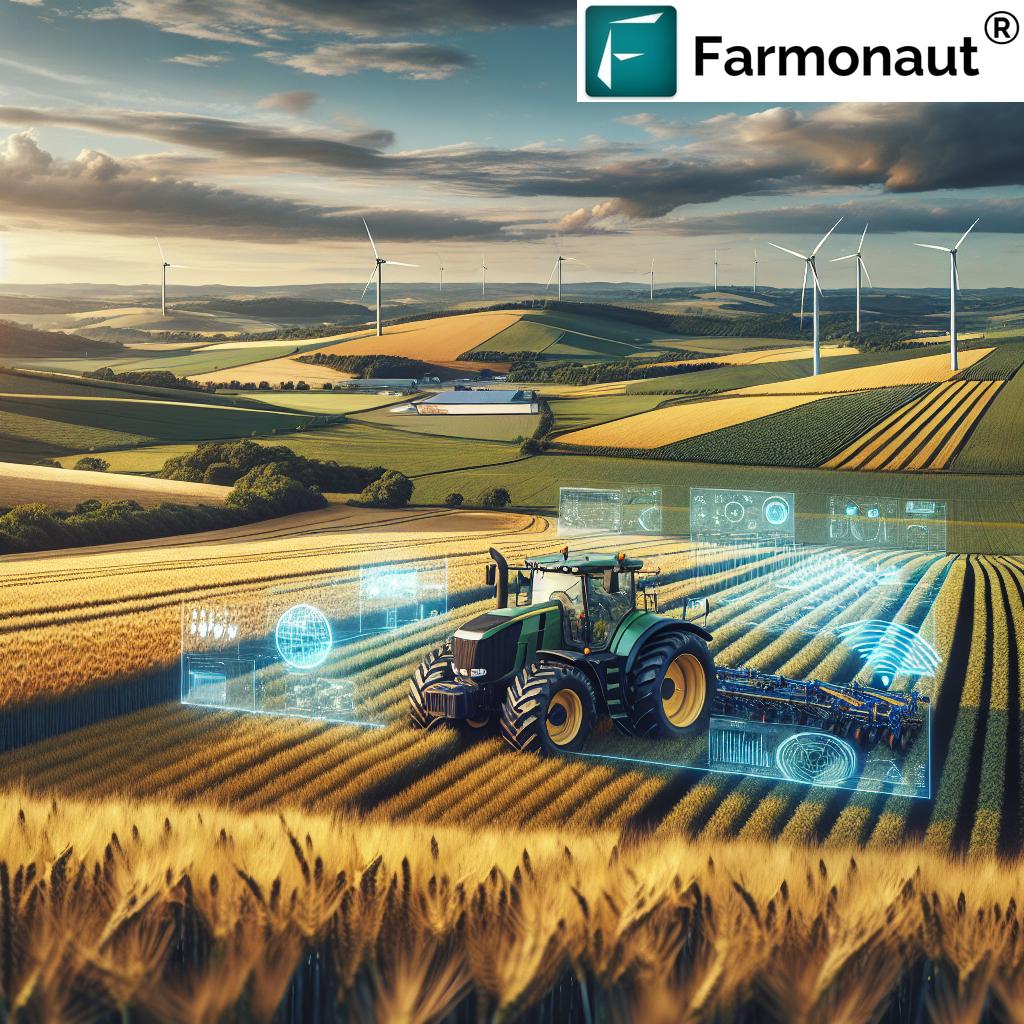
Rural Development: Empowering European Farming Communities
Rural development is a crucial aspect of the EU’s agricultural policy. The focus is on creating vibrant, sustainable rural communities that can thrive in the modern economy.
Farm Advisory Services: Bridging the Knowledge Gap
Farm advisory services play a vital role in disseminating knowledge and best practices to farmers. These services help farmers navigate complex regulations, adopt new technologies, and implement sustainable farming practices.
Farmonaut’s platform contributes to this effort by providing easy-to-understand, actionable insights derived from complex satellite data. Our mobile apps make this information accessible to farmers wherever they are.
Download our apps:
Agri-Food Innovation: Driving Rural Economies
The EU is promoting agri-food innovation as a means of boosting rural economies. This includes support for food processing industries, development of new agricultural products, and promotion of local food systems.
GIS and Remote Sensing: The Eyes in the Sky
Geographic Information Systems (GIS) and remote sensing technologies are revolutionizing agriculture by providing detailed, real-time information about crops and land use.
Satellite Imagery in Agriculture
Satellite imagery is becoming an indispensable tool for modern farmers. It provides a bird’s-eye view of farm operations, allowing for efficient monitoring of large areas.
At Farmonaut, we harness the power of multispectral satellite imagery to provide farmers with crucial information about their crops. Our technology can detect early signs of crop stress, helping farmers take preventive action before problems escalate.
Mapping and Monitoring Agricultural Land
GIS technology allows for precise mapping and monitoring of agricultural land. This is crucial for land use planning, crop rotation strategies, and monitoring compliance with environmental regulations.
Our platform integrates GIS capabilities, allowing farmers to create detailed maps of their fields and track changes over time. This historical data is invaluable for long-term planning and sustainable land management.
Explore our API for developers:
EU Agricultural Initiatives Comparison
| Initiative Name | Focus Area | Digital Farming Component | Sustainability Aspect | Impact on Rural Development |
|---|---|---|---|---|
| Common Agricultural Policy (CAP) Simplification | Policy Reform | Digital application systems | Eco-schemes | Streamlined support for farmers |
| Precision Farming Techniques | Farm Management | IoT sensors, GPS technology | Resource optimization | Increased farm efficiency |
| Climate-Resilient Crop Production | Crop Science | AI-driven crop breeding | Adaptation to climate change | Stable food production |
| Agri-Food Innovation Programs | Food Industry | Blockchain for traceability | Sustainable food systems | New economic opportunities |
| GIS and Remote Sensing Applications | Land Monitoring | Satellite imagery analysis | Environmental monitoring | Informed decision-making |
| Farm Advisory Services | Knowledge Transfer | Digital learning platforms | Best practice dissemination | Skill enhancement in rural areas |
| EU Agri-Food Days | Networking and Innovation | Virtual exhibition platforms | Showcase of sustainable solutions | Knowledge exchange and collaboration |
| Financial Support for Weather-Affected Farmers | Risk Management | Satellite-based damage assessment | Climate change adaptation | Economic resilience of rural communities |
The Role of Blockchain in Agriculture
Blockchain technology is making significant inroads in agriculture, particularly in the areas of supply chain management and traceability.
Enhancing Transparency in Agricultural Supply Chains
Blockchain provides an immutable record of transactions, enhancing transparency and trust in agricultural supply chains. This is particularly important for organic and specialty products where authenticity is crucial.
At Farmonaut, we’ve integrated blockchain technology into our platform to provide traceability solutions for various agricultural industries. Our system ensures that every stage of the product’s journey, from farm to consumer, is transparent and secure, thereby enhancing trust and reducing fraud in supply chains.
Improving Food Safety and Quality
By providing a transparent and tamper-proof record of a product’s journey, blockchain technology is helping to improve food safety and quality. In the event of a food safety issue, blockchain allows for rapid tracing of the product’s origin, facilitating quicker and more targeted recalls.
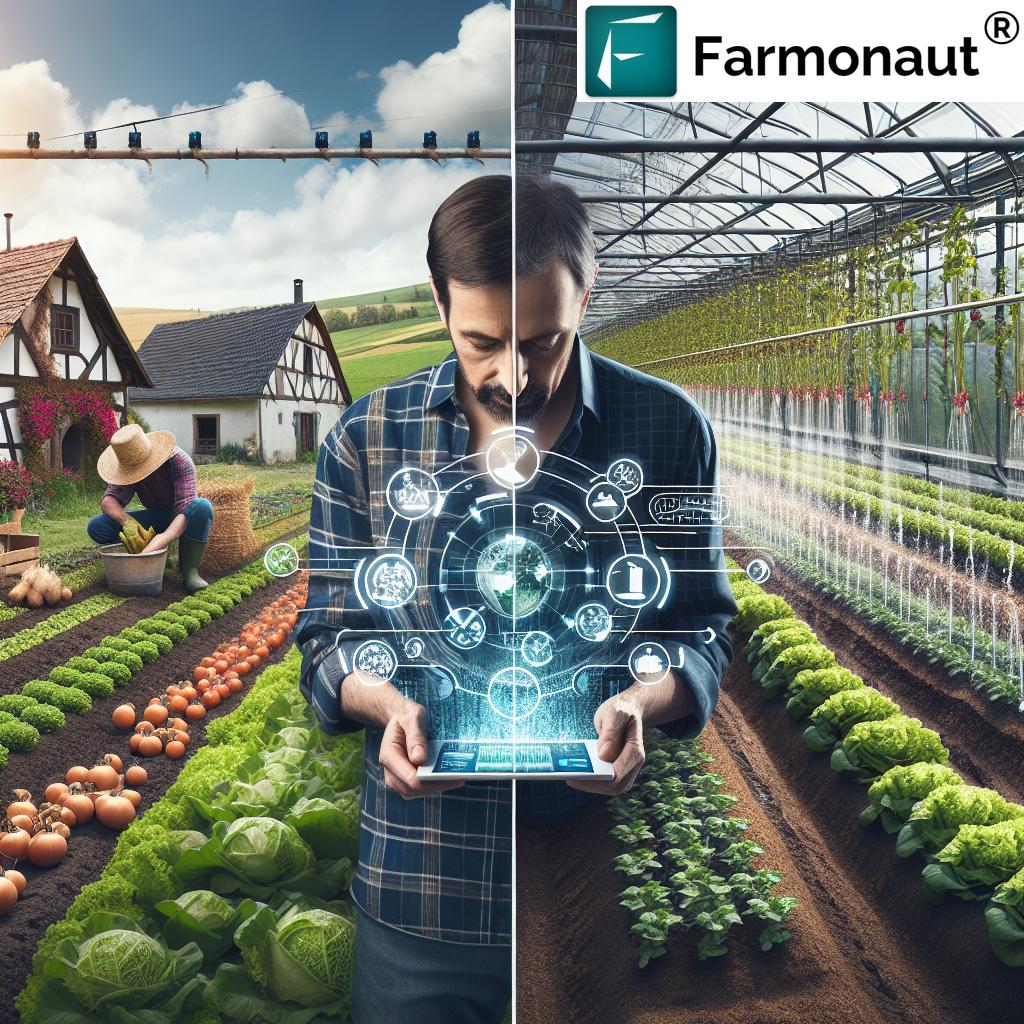
The Future of European Agriculture
As we look to the future, it’s clear that European agriculture is on a path of continuous innovation and sustainability. The integration of digital technologies, sustainable practices, and supportive policies is creating a resilient and efficient agricultural sector.
Addressing Climate Change
Climate change remains one of the biggest challenges facing agriculture. The EU is committed to developing climate-smart agricultural practices that reduce emissions while increasing resilience to climate impacts.
Our carbon footprinting feature at Farmonaut helps agribusinesses monitor and reduce their environmental impact. By providing real-time data on emissions, we enable businesses to take steps towards sustainability and compliance with environmental regulations.
Embracing Circular Economy Principles
The concept of circular economy is gaining traction in European agriculture. This approach aims to minimize waste and make the most efficient use of resources, from farm to fork.
Through our resource management tools, Farmonaut supports the implementation of circular economy principles in agriculture. Our platform helps farmers optimize their use of inputs and manage waste more effectively.
Conclusion: A Brighter Future for European Agriculture
The EU’s agricultural revolution, driven by digital farming and sustainable practices, is reshaping rural development across Europe. From precision farming techniques to blockchain-based traceability, technology is at the heart of this transformation. At the same time, a strong focus on sustainability ensures that this revolution is not just about productivity, but also about preserving our environment for future generations.
At Farmonaut, we’re proud to be part of this exciting journey. Our innovative solutions are helping farmers across Europe embrace the digital age of agriculture, promoting efficiency, sustainability, and rural development.
As we move forward, the future of European agriculture looks bright. With continued innovation, supportive policies, and a commitment to sustainability, we can create a resilient, efficient, and environmentally friendly agricultural sector that benefits farmers, consumers, and the planet alike.
FAQ Section
Q1: What is the Common Agricultural Policy (CAP)?
A1: The Common Agricultural Policy (CAP) is the EU’s agricultural policy designed to support farmers, improve agricultural productivity, ensure a stable supply of affordable food, and safeguard rural economies. It’s regularly updated to address current challenges in agriculture and rural development.
Q2: How is digital farming changing agriculture in the EU?
A2: Digital farming is revolutionizing EU agriculture by introducing precision farming techniques, AI-driven crop management, and satellite-based monitoring. These technologies help optimize resource use, increase yields, and promote sustainable farming practices.
Q3: What role does sustainability play in EU agricultural policy?
A3: Sustainability is a core focus of EU agricultural policy. This includes promoting organic farming, developing climate-resilient crops, and implementing environmentally friendly farming practices to ensure long-term food security while protecting natural resources.
Q4: How does Farmonaut contribute to EU agricultural development?
A4: Farmonaut provides advanced satellite-based farm management solutions that support precision agriculture, sustainable farming practices, and efficient resource management. Our tools help farmers make data-driven decisions, improving productivity and sustainability.
Q5: What are the main challenges facing European agriculture?
A5: Key challenges include climate change, resource scarcity, maintaining biodiversity, ensuring food security, and supporting rural economies. The EU is addressing these through policy initiatives, research and innovation, and the adoption of sustainable and digital farming practices.




